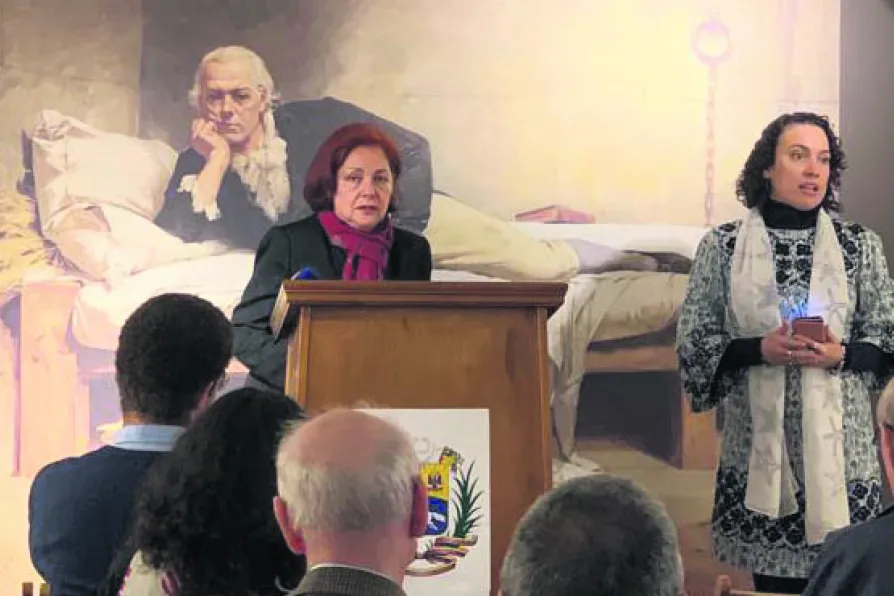

WASHINGTON’S bid to “destroy Venezuela” is wrecking the international laws governing relations between all states, Venezuela’s ambassador to Britain Rocio Maneiro warned today.
“Nobody really understands the danger” of the precedent set by the decision by some countries to recognise would-be usurper Juan Guaido as Venezuela’s leader in contravention of all international norms, she warned.
At a press conference in central London, Ms Maneiro said her country was “under siege,” noting that a blockade designed to “break the nation” had already cost billions of dollars and thousands of lives and that “if the nation resists the US military stands ready to act.”
Ms Maneiro detailed the “net” cast by the US to trap Venezuela, including by oil sanctions that cost the country an estimated $6 billion (£4.7bn) in revenues in the first year from August 2017.
There are even harsher measures on state oil firm PDVSA and its US subsidiary Citgo that have cost $11bn (£8.6bn) in expected revenues.
Sovereign assets have been retained, frozen or confiscated abroad amounting to $5.4bn (£4.2bn) held in 50 banks in 22 countries.
There has also been a mammoth $30bn (£23.5bn) in estimated losses from the financial isolation imposed by the closure of Venezuelan accounts in dollars and euros.
Ms Maneiro documented the history of Washington’s anti-Venezuelan measures from December 2014’s decision to sanction its Central Bank through the decision announced this week to ban flights from or to Venezuela from landing in the US.
The Washington-based Centre for Economic and Policy Research published a study in April detailing the impact of these measures on Venezuela’s ability to import needed goods, especially medicines, and estimated that 40,000 Venezuelans have died as a result of the US blockade.
Access to vaccines for children has also been severely restricted, though Ms Maneiro noted Chinese medicine shipments continued to arrive.
The stranglehold had not begun with President Donald Trump but with “that great Democrat Nobel Prize-winner Barack Obama” as the US tried to re-establish the subservient Latin America it had known “before Chavez, before Fidel, before Sandino,” but that it would fail.
“The Venezuelan people do not accept threats. History shows our response to threats has never been submission.”
She appealed to media organisations and solidarity campaigns present to help tell the truth about the situation, noting that “the great media is spreading stories the superpower wants it to spread. We don’t have the muscle to fight that.”

Our roving AGM from this Thursday through Sunday and our upcoming Morning Star Conference 2025 on June 14 in London are great opportunities to meet the team and help plan the way forward, says editor BEN CHACKO

















